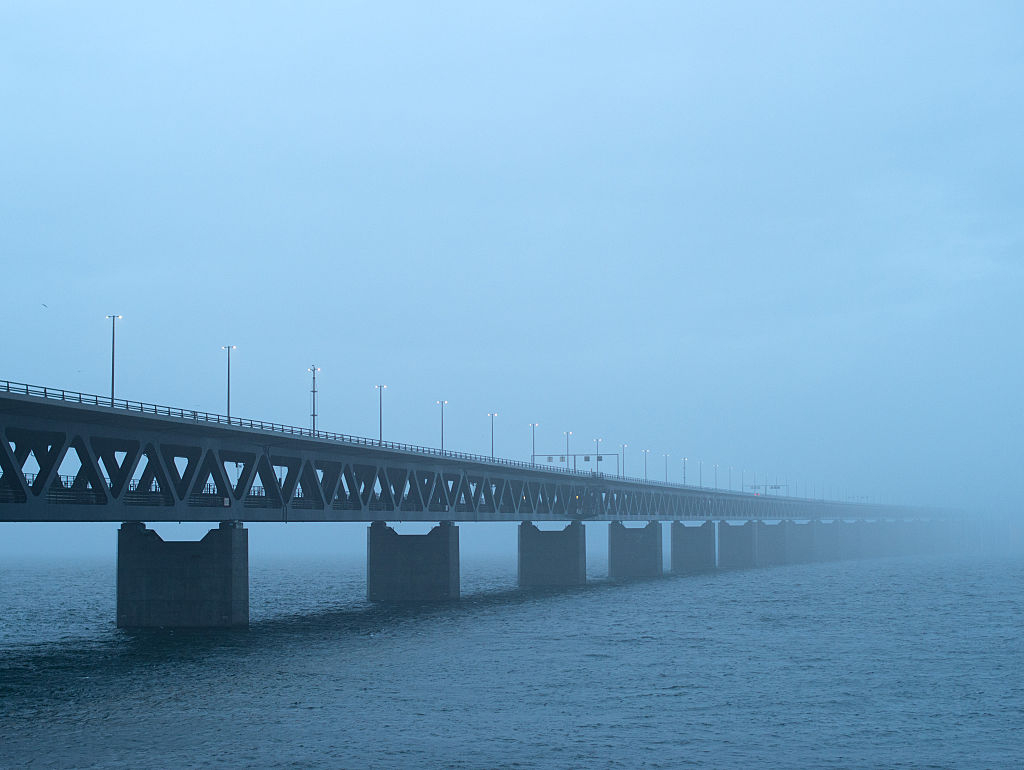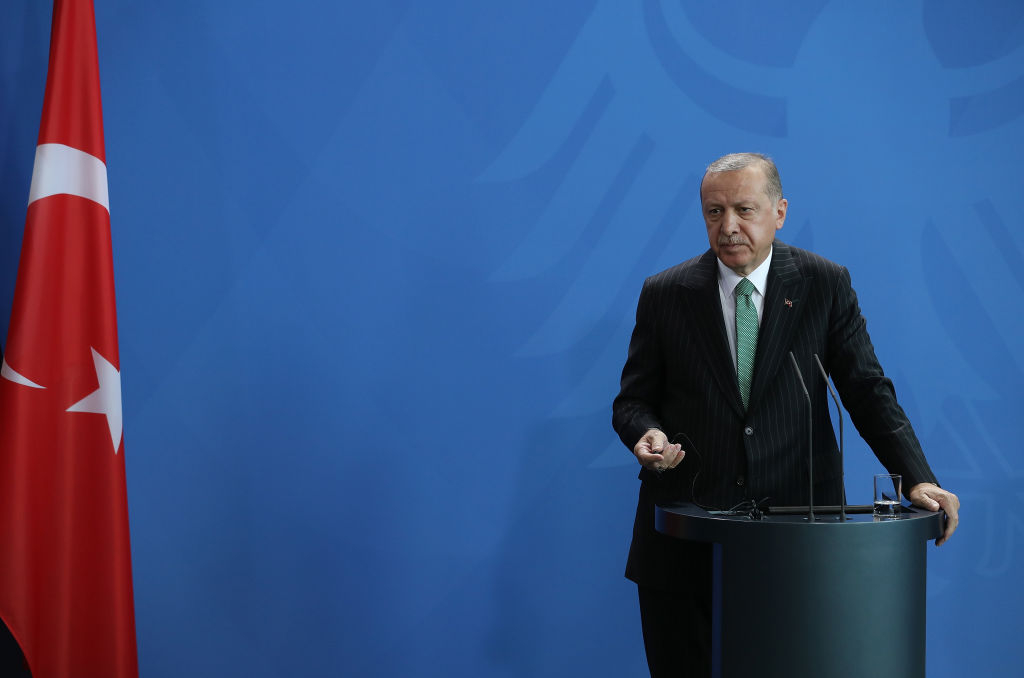In this mailing:
- Judith Bergman: Will Denmark Become Like Sweden?
- Burak Bekdil: Turkey Faces "Almost a Revolution in the Middle East"
by Judith Bergman • September 10, 2019 at 5:00 am
Sweden is exporting not only its bombings to Denmark. Gang crime, with its shootings and murders, has also traveled across the border.

Denmark is still relatively far from having reached the kind of crime epidemic that is currently plaguing Sweden. However, given the proximity of the two countries, the open borders and the apparent free flow of criminals across the borders -- not to mention Denmark's own crime level -- there seems little to stop the situation in Denmark from getting out of control and becoming increasingly more like Sweden. Pictured: The Øresund Bridge, part of the road and rail connection between Denmark and Sweden. (Photo by David Ramos/Getty Images)
Denmark has experienced 10 bombings since February. The latest took place on August 27 in a residential complex, Gersager, in the Greve area, very close to Copenhagen. No one was injured, but the building was seriously damaged. This year, the Swedish city of Malmö has experienced 19 bombings. An August 16 editorial in the Danish newspaper Berlingske Tidende said:
"No one wants Swedish conditions where shootings and bombings have reached an extreme degree. In addition to conflicts in the gang environment, there have been bombing attacks against police stations as well as courthouses, a town hall and the Swedish Tax Agency in Malmö in recent years."
by Burak Bekdil • September 10, 2019 at 4:00 am
"Hatice Karahan, Erdogan's top economic advisor, told DW that economic relations between the countries represented a 'win-win situation' for both: 'Turkey exports automobiles, iron, steel, electrical devices and plastic to Israel. And in return, it imports Israeli fuel and oil.'" — Deutsche Welle, December 12, 2017.
Erdoğan was unjust, wrong and unrealistic in his quest internationally to isolate Israel. The world has not quite moved in the direction he wished for.
"[T]he rapprochement that significant sections of the Israeli military and security establishment have long wanted with the GCC [Gulf Cooperation Council] has taken root since 2011, as the post-Arab Spring landscape has provided the opportunity to deepen unofficial ties in areas of shared concern." — Baker Institute, Rice University.

Turkish President Recep Tayyip Erdoğan may have dreamed of an Israel that is internationally isolated, but the world has not quite moved in the direction he wished for. (Photo by Sean Gallup/Getty Images)
Turkey's Islamist leaders, including President Recep Tayyip Erdoğan, have been pledging to their voters that they would "internationally isolate Israel" ever since they launched a diplomatic war on the Jewish state in 2010.
In a 2011 speech, Turkey's foreign minister at the time, Ahmet Davutoğlu (later prime minister), said that his country's Turkey's policies in the Middle East "have brought Israel to its knees" and isolated the Jewish state both regionally and internationally.
The facts, however, could not have been more distant.
According to official reports, Israel's Gross Domestic Product (GDP) rose by a healthy 3.3% in 2018, compared to 1.3% in 2009, while Turkey reported a drop from 8.5% in 2010 to 2.8% in 2018. The unemployment rate in Israel stood at 3.7% in July 2019. Turkey, meanwhile, boasted an unemployment rate of 14.7% in the December-February 2018-2019 period, its highest level in nearly a decade.
|
|
No comments:
Post a Comment